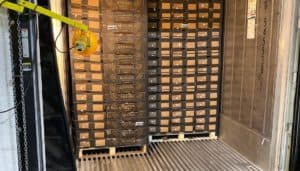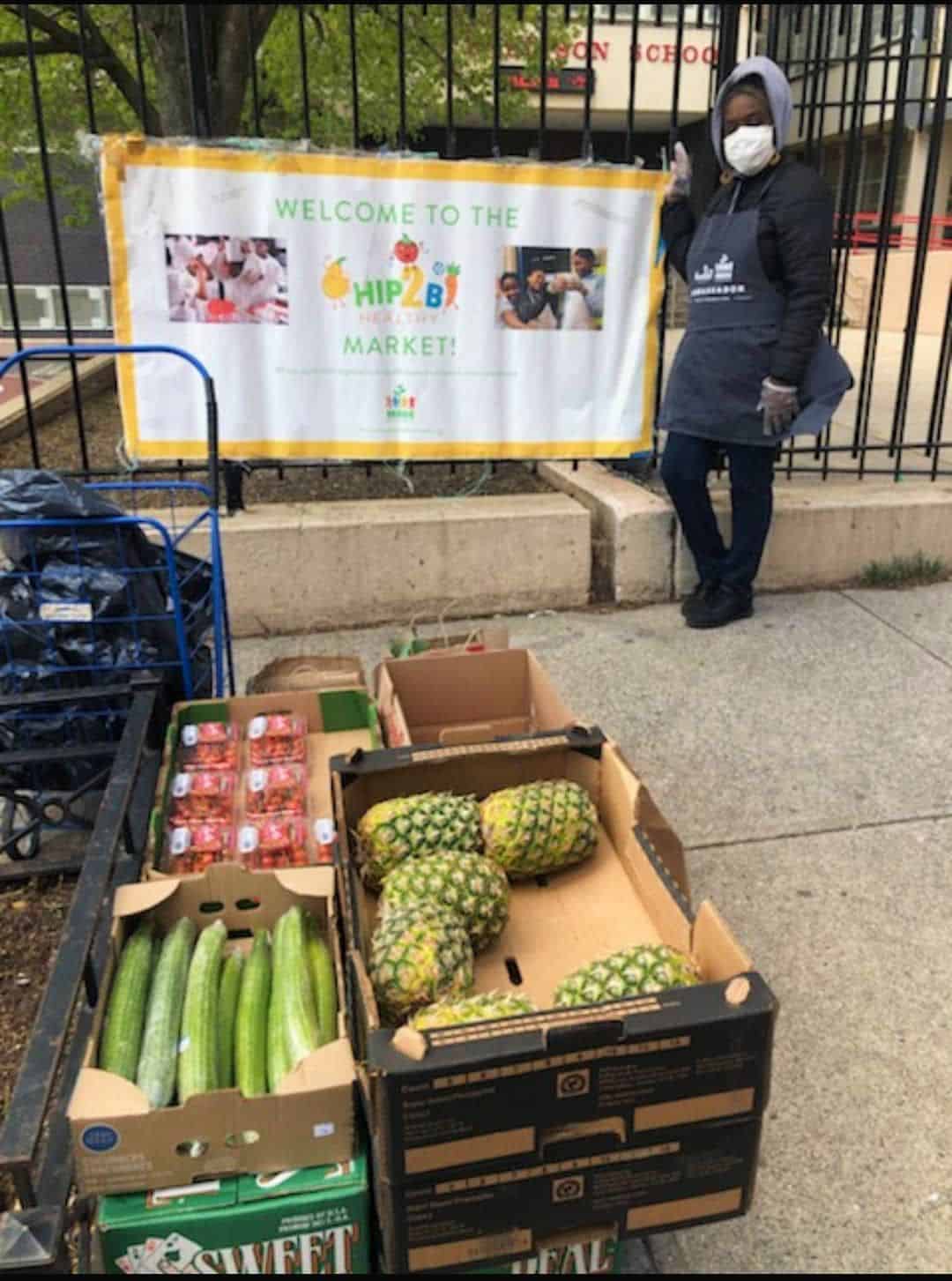Thanks to donations from Queens-based food importer Redi-Fresh Produce Inc. (RFP), more than 100,000 pounds of pineapples and bananas have made their way to the needy in New York and New Jersey.
RFP is a produce importer that receives containers at the Red Hook Container Terminal (RHCT). RHCT President Mike Stamatis and RFP President Peter Malo felt they could be helpful after New York State went on PAUSE in March.
“Based on what we were seeing and hearing in the news and seeing what was going on with the COVID-19 virus, Peter said, ‘Why don’t we donate the pineapples that just came in?’” Stamatis explained to us. “It was initially going to be just one shipping container of pineapples – which is about 10,000 pineapples – and we weren’t sure where we were going to donate that many pineapples.”
A team effort
The duo reached out to several local elected officials and community organization leaders for recommendations on possible places for distribution in South Brooklyn. Before Easter and Passover, they donated more than 2,040 pineapples from Costa Rica to the Center for Family Life Food Pantry (960 pineapples), Community Help in Park Slope Inc. (480 that were completely distributed in one afternoon), the Red Hook Art Project (300), the Red Hook Initiative (300) and the NYPD’s 76th Precinct. The tropical fruit was inventoried, sorted and unpacked by workers of the International Longshoremen’s Association, and later delivered to the locations by volunteers from MTC Transportation, an RHCT trucking partner.
The more, the merrier
That first donation worked out so well that Malo donated the next incoming shipment to City Harvest.
The group received 21 pallets of pineapples, weighing a total of 48,720 pounds, which were given away to five food pantries, soup kitchens and community food programs in Gowanus and Sunset Park during the week of April 13. Saul Puche, a food sourcing coordinator at City Harvest, noted the physical immensity of the delivery and how shocked he was to see it.

“The pineapples were actually still in the shipping container from Costa Rica, which is something that City Harvest never gets. That’s the first time I had ever seen it,” he said. “The pallets were so high that the warehouse employees had to break them down to just get them in the door – that’s how tall they were.”
On April 24, City Harvest’s Long Island City warehouse also received nearly 44,000 pounds of bananas from Ecuador. The usual transit time from Ecuador to Brooklyn, according to Stamatis, takes about 10 days. Once the vessel arrives at the RHCT, the bananas are unloaded and trucked to a ripening facility in New Jersey for processing. In this case, that banana load was distributed by volunteers four days later to at least eight agencies located throughout the high-need areas of Sunset Park, Gowanus and Red Hook.
The Red Hook Art Project received 40 cases each of apples, oranges, bananas, tomatoes and potatoes.
“It was a huge impact in the community, especially the community of color because it’s hard to have access to healthy choices and fresh fruit. But it was also a happy moment to be able to share the blessings with the greater Red Hook area,” Tiffiney Davis, co-founder and managing director of the Red Hook Art Project, said. “The pineapples were a great way to get everybody engaged in supporting and respecting one another during these difficult times.”
Karen Blondel, an organizer for the Fifth Avenue Committee, also led various distribution efforts in Red Hook and Gowanus last month – including making sure that deliveries from RFG would be made to public housing residents. Through her network of connections, she also spread the word that RHCT volunteers organized produce boxes for local pickup at the container terminal’s entrance.
“Tons of pictures started coming out on social media of what people were doing with their pineapples,” Blondel said. “Seeing the pineapples and the smiles on their faces, in the middle of this pandemic, really touched me that we can help each other in dark times. Sometimes it’s just those little acts of sharing some fresh produce that can make the difference in someone’s life.”
According to the Port Authority of New York and New Jersey, RFP also donated a shipping container of pineapples on April 17 to the Community Food Bank of New Jersey in Hillside – a supplier to more than 1,000 food pantries, soup kitchens and shelters across New Jersey.
All hands on deck
The response to RFG’s donations was so overwhelmingly positive that other food importers, whose shipments also come through the local terminal, joined in too.
“We’re an essential business; however, the term ‘essential’ has provided some new perspective for us in this difficult time,” said Jose Concepcion, Seaboard Marine’s vice president of Central America, on April 9. “Yes, we provide transportation, but we’re humbled to be working with all of our dedicated partners – even those we don’t work with directly. From the farms, exporters, and overseas governments, to customs brokers, customers, U.S. government agencies, and grocery stores, both large and small.”
In that same vein, Stamatis emphasized the importance of having an active port here within the five boroughs.
“A lot of fresh produce that’s coming into the city is coming directly here into the Red Hook Container Terminal and being distributed all over the city, including the Hunts Point Market, the Brooklyn Market and other local distributors and retailers,” Stamatis said. “It’s providing a true lifeline for the local community and for the city at large. Without having these port facilities, like the one in Red Hook, everything would depend on being trucked into the city, which may not always be the best option.”
Top photo: Volunteer from Seed in the Middle’s Hip2B Healthy Market, with fruit donations on April 22. Photo courtesy of Karen Blondel.
Author
-

George Fiala has worked in radio, newspapers and direct marketing his whole life, except for when he was a vendor at Shea Stadium, pizza and cheesesteak maker in Lancaster, PA, and an occasional comic book dealer. He studied English and drinking in college, international relations at the New School, and in his spare time plays drums and fixes pinball machines.
View all posts
George Fiala has worked in radio, newspapers and direct marketing his whole life, except for when he was a vendor at Shea Stadium, pizza and cheesesteak maker in Lancaster, PA, and an occasional comic book dealer. He studied English and drinking in college, international relations at the New School, and in his spare time plays drums and fixes pinball machines.










